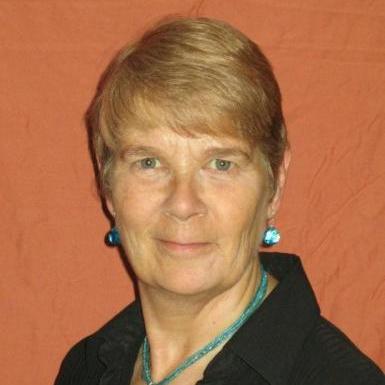Professor Susan Hallam has made a lifelong and outstanding contribution to music education through the three strands of her career - as a professional musician, music educator and academic. Her leadership qualities emerged early on, leading the UK Leicestershire County School of Music Symphony Orchestra and the top orchestra at the Royal Academy of Music, where she studied. She was later deputy leader of the Orchestra de Camera. Having spent six years as Principal 2nd violin in the BBC Midland Light Orchestra, she went on to make a major contribution as a music teacher and Head of Strings in Oxfordshire and Birmingham Education Authorities, inspiring a generation of musicians. During this time she pioneered the use of composition as a vehicle for teaching the theory of music. Significantly, she played a leading role in a successful campaign to save local authority music service instrumental teaching and ensembles provision, threatened during the 1980s. On completion of a distinguished Masters and PhD in psychology leading to recognition by the British Psychological Society as a chartered psychologist, she pursued research into instrumental playing and the development of expertise in music. Her research interests quickly grew to encompass issues relating to musical development and music education across the life-course. Having joined the Institute of Education, University of London (IOE) in 1991, she was appointed professor in 2003, Head of Department in 2005 and Dean of Faculty in 2007. She became Professor Emeritus in 2013 and remains an active teacher and researcher there. Sue has been pivotal in promoting excellence in music education and supporting aspiring musicians, evidenced by extensive publications including her books: ‘Instrumental Teaching’ (1998), ‘Music Psychology in Education’ (2006), ‘Music Education in the UK in the 21st Century (2010) and ‘Preparing for Success: A practical guide for young musicians’ (2012), as well as by the leading role she played in developing and validating the Certificate of Teaching in Higher Education for Conservatoire Teachers, accredited by the UK Higher Education Academy. Her publications, numbering well over a hundred, range from books, monographs, and book chapters to singly and jointly authored refereed journal articles. They reveal not only the high quality of her personal contribution to the world of music education and education more generally, but also her contribution to the development of those who share in it. Sue’s paper ‘The Power of Music’ provides one of the most succinct and accessible summaries of research concerned with the wider benefits of music and has been extensively cited, being one of the most frequently downloaded articles from the International Journal of Music Education. Most recently, Sue’s research interests have turned to the power of music in later life. To this end, she led a major programme of research, funded by the UK Research Councils, which has made a highly significant contribution to the evidence base demonstrating the social, emotional and cognitive benefits of music-making in older age. As ever, Sue has used this research as a basis for advocacy for high quality musical opportunities across the life-course, most recently presenting (again) to the All Party Parliamentary Committee for Music Education in the Houses of Parliament, April 2014. Sue is herself highly esteemed as a teacher and has been an outstanding role model and mentor for early career researchers in music education, many of whom have gone on to have successful careers and high impact in the music education world. In recognition of Sue’s excellence in teaching and research respectively, she was made a Fellow of the Higher Education Academy in 2001 and an Academician of the Academy of Social Sciences in 2003, an Associate Fellow of the British Psychological Society (1995), a Fellow of the Royal Society of Arts (1996) and an Associate of the Royal Academy of Music (2006). Her advisory work with successive UK Governments and charitable agencies has often reflected her passion for music education – for example, leading four major national surveys of local authority music service provision, advising on the UK National Curriculum for music and national schemes to enable all children to play a musical instrument (for the then Dept for Education and Skills), and on the accreditation of graded music examinations and vocational qualifications in music (for the then Qualifications and Curriculum Agency), leading programmes of research concerned with music pedagogy (for example, Musical Futures [Paul Hamlyn Foundation[, primary school music teacher training [EMI Music Sound Foundation[,primary school music education [Voices Foundation]) and the wider benefits of music in later life (New Dynamics of Ageing Programme, Economic and Social Research Council). Sue has been Editor of Psychology of Music, is currently on the Editorial Board for Research Studies in Music Education and Psychology of Music and regularly peer reviews for several music education journals. In addition she has provided extensive service as external examiner for music education programmes and individual doctoral candidates, internationally. Professor Hallam has had extensive engagement with professional bodies in the fields of music, psychology and education research – 11 in total, including the Society for Research in Psychology of Music and Music Education, and the British Psychological Society (BPS). She is a long-serving member of the International Society for Music Education and has made a valued contribution to the Research Commission for several years, as well as serving on the Advisory Committee. Professor Sue Hallam has not sought the limelight for herself, but has made an impressive mark on each of the fields in which she has been involved; her students find her inspiring to work with, and the education research community has benefited enormously from her wise and dedicated service. She is widely respected and most deserving of recognition.
Membership

Susan Hallam
United Kingdom
Professor of Education and Music Psychology
UCL, Institute of Education











